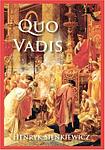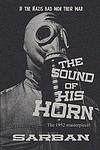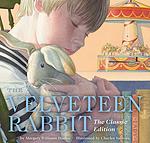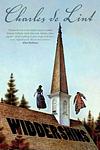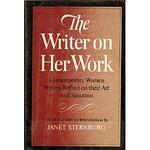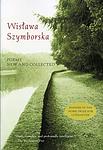The Greatest Polish, Unknown Books of All Time
Click to learn how this list is calculated.
This list represents a comprehensive and trusted collection of the greatest books. Developed through a specialized algorithm, it brings together 300 'best of' book lists to form a definitive guide to the world's most acclaimed books. For those interested in how these books are chosen, additional details can be found on the rankings page.
Genres
Countries
Date Range
Reading Statistics
Click the button below to see how many of these books you've read!
Download
If you're interested in downloading this list as a CSV file for use in a spreadsheet application, you can easily do so by clicking the button below. Please note that to ensure a manageable file size and faster download, the CSV will include details for only the first 500 books.
Download-
1. Epic of Gilgamesh by Unknown
This ancient Mesopotamian epic follows the story of Gilgamesh, a demigod king who rules over the city of Uruk. Unhappy with his reign, the gods create a wild man named Enkidu to challenge him. However, Gilgamesh and Enkidu become close friends and embark on several adventures together, including defeating the demon Humbaba and killing the Bull of Heaven. After Enkidu's death, Gilgamesh becomes obsessed with finding immortality, leading him on a journey to meet Utnapishtim, the only human who has been granted eternal life. The narrative explores themes of friendship, mortality, and the meaning of life.
-
2. Ferdydurke by Witold Gombrowicz
"Ferdydurke" is a satirical novel that explores the themes of maturity, identity, and societal norms. The protagonist, a thirty-year-old writer, is forcibly regressed by two professors back to his adolescence and placed in a school setting. The narrative critiques the artificiality of adulthood and the pressure of societal expectations, while also exploring the struggle for self-expression and individuality. The book is known for its absurdist humor and its examination of the human condition.
-
3. Beowulf by Unknown
"Beowulf" is an Old English epic poem that tells the story of the eponymous hero, a Geatish warrior who comes to the aid of Hrothgar, the king of the Danes, whose mead hall is under attack by a monster known as Grendel. Beowulf fights and defeats Grendel and his mother, earning the gratitude and friendship of Hrothgar. Later in his life, Beowulf becomes king of the Geats and faces his final battle with a deadly dragon. The poem explores themes of heroism, fate, and mortality, and is considered one of the most important works of Old English literature.
-
4. Solaris by Stanislaw Lem
The novel is a psychological exploration of human limitations and failures set against the backdrop of space exploration. When a psychologist arrives at a research station orbiting a distant planet covered entirely by a sentient ocean, he discovers the crew in disarray, haunted by physical manifestations of their subconscious fears and desires. As he grapples with the ocean's inscrutable nature and its unsettling ability to materialize human thoughts, he is forced to confront his own guilt and regret, embodied by the apparition of his deceased wife. The story is a philosophical meditation on the impossibility of truly understanding alien intelligence and the painful isolation of the human condition.
-
5. Quo Vadis by Henryk Sienkiewicz
Set in ancient Rome during the reign of Emperor Nero, "Quo Vadis" follows the love story of a young Christian woman Lygia and a Roman patrician, Marcus Vinicius. As their relationship blossoms, they must navigate the dangerous political climate of the time, marked by Nero's tyranny and the growing influence of Christianity. The novel provides a vivid depiction of the clash between pagan Rome and the early Christian church, culminating in the Great Fire of Rome and subsequent persecution of Christians.
-
6. Night by Elie Wiesel
This book is a memoir of the author's experiences during the Holocaust, specifically in the Auschwitz and Buchenwald concentration camps. The narrative focuses on the relationship between a father and son under the most extreme circumstances, the loss of faith in God, humanity, and in each other, and the horrifying reality of the systematic genocide of six million Jews during World War II. The book is a poignant and stark examination of the depths of human evil and the enduring power of hope and survival.
-
7. Mythology by Edith Hamilton
This book is a comprehensive guide to ancient Greek, Roman, and Norse mythologies, providing detailed accounts of various gods, goddesses, heroes, and other mythological creatures. It includes well-known stories like the Odyssey and the Iliad, along with lesser-known tales, and analyzes their significance in the cultures they originated from. The book also delves into the origins of these myths and their influence on later civilizations, offering readers a deep understanding of ancient cultures and their belief systems.
-
8. The Painted Bird by Jerzy Kosinski
"The Painted Bird" is a dark and harrowing novel set in Eastern Europe during World War II. The story follows a young, unnamed boy of unknown ethnicity who is sent by his parents to live in a remote village for safety. However, he is instead subjected to brutal violence, abuse, and superstition by the superstitious peasants. The book explores themes of survival, human cruelty, and the loss of innocence in the face of war and hatred.
-
9. This Way for the Gas, Ladies and Gentlemen by Tadeusz Borowski
This book is a collection of short stories based on the author's experiences as a prisoner in Auschwitz during the Holocaust. Each story provides a harrowing, yet matter-of-fact, account of life in the concentration camp, from the brutal work details to the constant threat of death. The author's stark and unflinching portrayal of the horrors of Auschwitz serves as a powerful testament to the human capacity for survival and resilience in the face of unimaginable cruelty.
-
10. On the Revolutions of the Heavenly Spheres by Nicolaus Copernicus
This book presents the revolutionary astronomical model that places the sun, rather than the earth, at the center of the universe. The author challenges the geocentric model of the cosmos, which had been widely accepted since the time of Aristotle, and instead proposes a heliocentric system, where the planets orbit the sun. This revolutionary idea transformed the way we understand our place in the universe, paving the way for modern astronomy and science.
-
11. The Captive Mind by Czesław Miłosz
"The Captive Mind" is a thought-provoking exploration of the intellectual and moral dilemmas faced by artists and intellectuals living under oppressive regimes. Through a series of powerful and insightful essays, the author delves into the psychological and ideological transformations experienced by individuals who compromise their values and conform to the demands of totalitarianism. With a blend of personal anecdotes, historical analysis, and philosophical reflections, this book offers a profound examination of the complexities of intellectual freedom and the power of ideology.
-
12. The Magician of Lublin by Isaac Bashevis Singer
This novel tells the story of Yasha Mazur, a talented and renowned 19th-century Jewish magician living in Poland. Yasha is a complex character, torn between his own desires and the expectations of his religious community. He leads a double life, juggling his career, his marriage, and his multiple affairs. As he grapples with his conflicting identities, Yasha is forced to confront his own moral failings and the consequences of his actions. His journey is one of self-discovery and redemption, offering a nuanced exploration of faith, love, and the human condition.
-
13. Legend by David Gemmell
In a post-apocalyptic world, an aging warrior known as Druss comes out of retirement to defend his homeland from invading hordes. Despite his advanced age, he is still a formidable fighter and is revered as a living legend. As he prepares for a seemingly impossible battle, he must confront not only his enemies but also his own personal demons and the specter of his own mortality. The novel is a compelling blend of action, adventure, and introspection, exploring themes of heroism, honor, and the human capacity for courage in the face of overwhelming odds.
-
14. The Sound Of His Horn by Sarban
"The Sound of His Horn" is a dystopian science fiction novel set in a future where the Nazis have won World War II. The story follows Alan Querdilion, a British prisoner of war who wakes up in a bizarre alternate reality ruled by a cruel and sadistic Nazi regime. As he navigates this nightmarish world, Querdilion must confront his own survival instincts and grapple with the moral implications of his actions. With its haunting atmosphere and thought-provoking exploration of power and humanity, the novel offers a chilling and unsettling reflection on the consequences of totalitarianism.
-
15. The Velveteen Rabbit by Margery Williams
"The Velveteen Rabbit" is a heartwarming children's book about a stuffed rabbit who longs to become real. Through his encounters with other toys and his friendship with a young boy, the rabbit learns about love, loyalty, and the true meaning of being alive. With beautiful illustrations and a touching narrative, this timeless tale teaches valuable lessons about the power of imagination and the transformative nature of love.
-
16. Widdershins by G. Oliver Onions
"Widdershins" is a gripping psychological thriller that follows the life of a troubled young woman named Alice. Haunted by a traumatic childhood event, Alice finds herself drawn into a mysterious world of dark secrets and supernatural occurrences. As she delves deeper into the enigmatic past of her family, Alice must confront her own demons and unravel the truth before it consumes her. With its atmospheric setting and complex characters, "Widdershins" is a chilling tale of suspense and self-discovery.
-
17. Gimpel the Fool by Isaac B Singer
"Gimpel the Fool" is a collection of short stories that portray the life of Gimpel, a simple baker who is often deceived by the people in his town. Despite the continuous deceit, Gimpel maintains his faith in humanity and never seeks revenge. Throughout the stories, the protagonist's innocence and naivety are contrasted with the harsh realities of the world, exploring themes of faith, forgiveness, and the inherent goodness of people.
-
18. The Street of Crocodiles by Bruno Schulz
"The Street of Crocodiles" is a collection of short stories set in a small town in Poland, illustrating the author's unique perspective on reality. The book portrays the narrator's father's eccentricities and his vivid, often disturbing, imagination. The stories are filled with bizarre, dreamlike imagery and metaphors, presenting a surreal and grotesque view of everyday life. The book is a profound exploration of human nature, memory, and the power of imagination.
-
19. The Last Bouquet by Marjorie Bowen
"The Last Bouquet" by Marjorie Bowen is a captivating historical novel set in 18th-century France. The story follows a young woman named Genevieve, who finds herself caught in the midst of the French Revolution. As chaos and violence engulf the nation, Genevieve's life takes a dramatic turn when she becomes entangled with a group of revolutionaries. Faced with difficult choices and dangerous secrets, she must navigate a treacherous path to protect her loved ones and find her own freedom. Bowen's vivid storytelling and rich historical detail bring this tumultuous period to life, offering a compelling tale of love, sacrifice, and resilience.
-
20. The Manuscript Found in Saragossa by Jan Potocki
"The Manuscript Found in Saragossa" is a complex, multi-layered narrative that revolves around a young officer who discovers an ancient manuscript during the Napoleonic Wars. The manuscript contains a series of interwoven stories that span across time and space, featuring a range of characters including gypsies, bandits, and noblemen. These tales explore themes of philosophy, morality, and the supernatural, all while offering a fascinating glimpse into 18th-century Spanish culture.
-
21. Shah Of Shahs by Ryszard Kapuscinski
This book is a compelling blend of history and personal narratives, set against the backdrop of Iran's 1979 revolution. The author, a seasoned journalist, delves into the complex tapestry of Iranian society, exploring the rise and fall of the last monarch. Through a series of vignettes and interviews with Iranians from all walks of life, the narrative captures the atmosphere of fear and hope that defined the era. The work is as much an examination of the mechanics of power and the ease with which a society can be manipulated as it is a chronicle of a pivotal moment in Iran's history. The author's lyrical prose and sharp insights offer a timeless reflection on the nature of tyranny and the human struggle for freedom.
-
22. The Futurological Congress by Stanislaw Lem
In a dystopian future, the protagonist attends a scientific conference where he is exposed to a new hallucinogenic drug that transports him to a surreal and chaotic world. As he navigates through this bizarre reality, he becomes entangled in a conspiracy involving mind-altering technology, political manipulation, and the struggle for power. This satirical novel explores themes of reality, identity, and the dangers of unchecked technological advancements.
-
23. The Writer on Her Work by Janet Sternburg
"The Writer on Her Work" is a collection of essays by various female authors who discuss their experiences, challenges, and perspectives on writing. The book explores the complexities of being a woman in the literary world, shedding light on topics such as gender bias, the struggle for recognition, and the balance between personal life and professional aspirations. It provides a unique insight into the creative process, revealing how these women navigate their craft amidst societal expectations and personal obstacles.
-
24. Satan In Goray by Isaac Bashevis Singer
Set in the 17th century, the novel explores the impact of false messianic fervor on the Jewish community of Goray, a small Polish town. After the devastating Chmielnicki massacres, the traumatized survivors find themselves drawn to the charismatic but ultimately destructive figure of Sabbatai Zevi, who claims to be the long-awaited Messiah. As the community becomes increasingly divided between believers and skeptics, the narrative delves into themes of faith, madness, and the desperate need for redemption, painting a vivid picture of a society on the brink of collapse under the weight of its own expectations and desires.
-
25. Poems, New And Collected, 1957 1997 by Wislawa Szymborska
This book is a collection of poems written by Wislawa Szymborska from 1957 to 1997. The poems explore a wide range of topics, including love, death, nature, and the human experience. With her unique and thought-provoking style, Szymborska delves into the complexities of life, often with a touch of humor and irony. Through her powerful and evocative language, she invites readers to reflect on the profound and sometimes contradictory aspects of existence.
Reading Statistics
Click the button below to see how many of these books you've read!
Download
If you're interested in downloading this list as a CSV file for use in a spreadsheet application, you can easily do so by clicking the button below. Please note that to ensure a manageable file size and faster download, the CSV will include details for only the first 500 books.
Download



